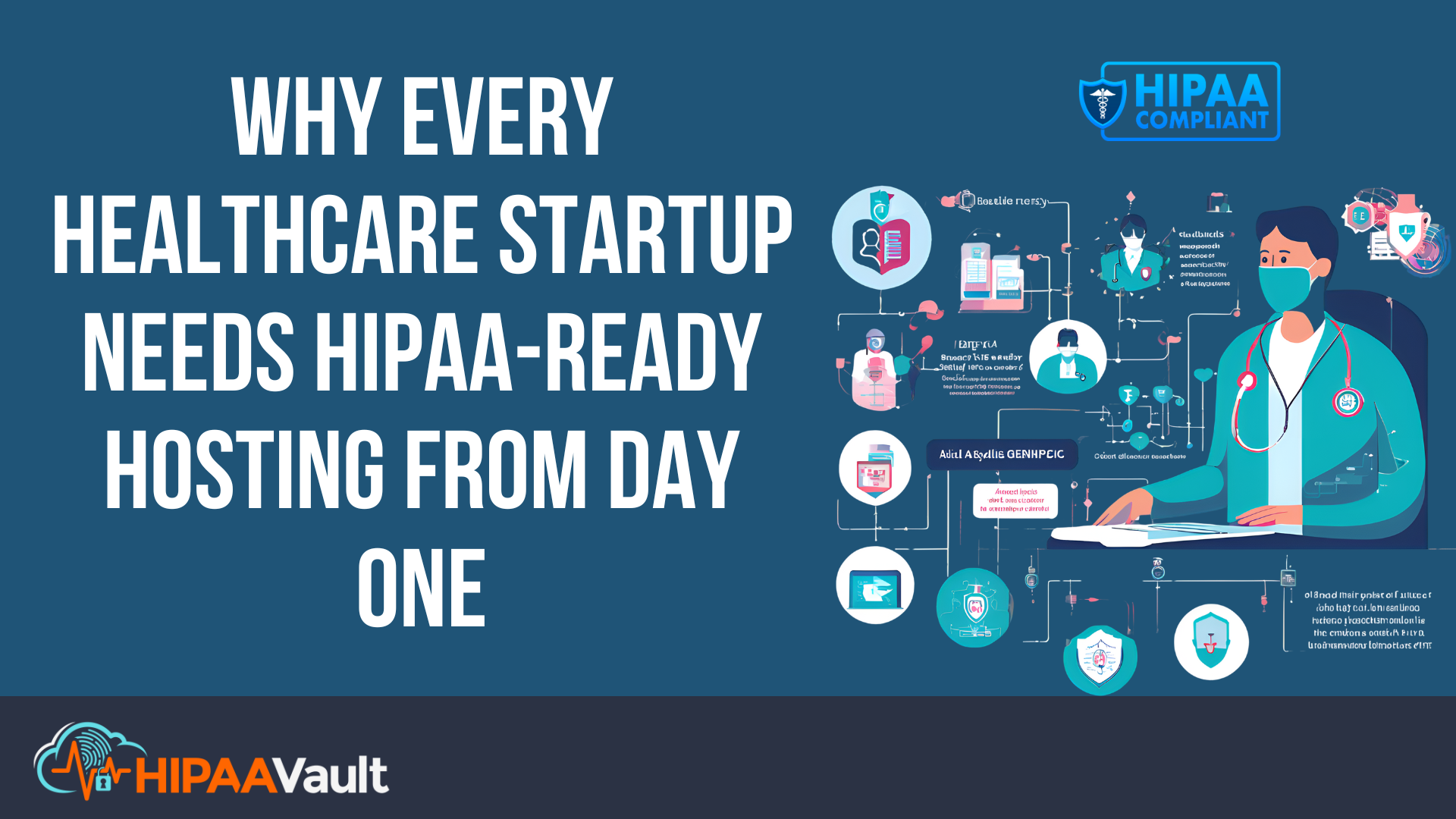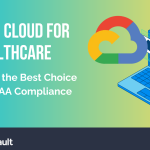
Security First: Why Every Healthcare Startup Needs HIPAA-Ready Hosting from Day One
Introduction: HIPAA-First or Risk It All
Every week, another healthcare startup makes headlines—not for its latest breakthrough, but for falling victim to a data breach. Whether it’s exposed patient records, fines for non-compliance, or reputational damage, the outcomes are devastating and often irreversible. For early-stage companies in digital health, telemedicine, or biotech, these breaches are not just IT failures—they’re business-ending events.
At HIPAA Vault, we’ve worked with numerous startups entering the healthcare space. Some arrive well-prepared with compliance in mind, while others come to us after discovering—often too late—that their infrastructure doesn’t meet HIPAA standards. What we’ve seen is consistent: startups that prioritize HIPAA compliance from day one are not only more secure but also more attractive to investors, partners, and enterprise clients.
The Rise of Digital Health Startups
The digital transformation of healthcare has given rise to an exciting new wave of startups. From mobile diagnostics and mental health platforms to remote monitoring tools and AI-powered clinical decision-making, innovation is thriving. This boom is fueled by investor interest, greater access to health data, and growing patient demand for convenient, tech-enabled care.
Yet with innovation comes responsibility—especially when handling protected health information (PHI). HIPAA, the Health Insurance Portability and Accountability Act, requires strict administrative, physical, and technical safeguards when storing or transmitting PHI. That means any startup engaging with health data must treat compliance not as an afterthought, but as a foundational design principle.
Selecting HIPAA-compliant infrastructure early enables healthcare startups to:
- Launch faster without the need for costly compliance overhauls later
- Build credibility with healthcare partners and stakeholders
- Integrate more easily with health systems, electronic health records (EHRs), and APIs
Starting with HIPAA hosting for startups is not just a legal necessity—it’s a strategic advantage.
Common Mistakes Healthcare Startups Make
While startups are known for their agility and innovation, they often make avoidable mistakes when it comes to compliance and security. Let’s explore three of the most common.
Delaying Compliance Planning
One of the most widespread missteps is postponing HIPAA compliance until the startup has “traction” or a working product. The logic seems sound—prioritize speed to market and worry about compliance once there’s revenue. Unfortunately, this approach often backfires.
When compliance is delayed, startups risk building on insecure infrastructure that must be re-architected. Security layers like encryption, access control, and monitoring aren’t just bolt-ons—they’re part of the foundation. Retroactively implementing them is time-consuming, expensive, and disruptive.
Worse, if PHI is already in play without the proper safeguards, the startup could be in violation of federal regulations, potentially facing fines or legal action.
Choosing Generic Cloud Services
Cloud platforms like Google Cloud, AWS, and Azure offer vast capabilities, but not every configuration is HIPAA-ready. Startups often assume that using a popular cloud provider means they’re covered. In reality, HIPAA compliance requires specific technical measures and legal agreements, such as a signed Business Associate Agreement (BAA).
Without a BAA, the cloud provider is not legally bound to safeguard your data, placing the full compliance burden on your company. Additionally, without proper configurations—including encryption at rest and in transit, identity and access management, and logging—you may be exposing sensitive data without realizing it.
Underestimating HIPAA Audit Requirements
HIPAA compliance involves much more than encryption. If audited, your organization must demonstrate a wide range of security measures:
- Role-based access controls
- Intrusion detection systems
- Regular vulnerability assessments and penetration testing
- Activity logging and audit trails
- Documented security policies and employee training
Startups that fail to prepare for these requirements are left scrambling—or worse, facing penalties.
The Benefits of Starting with HIPAA-Compliant Hosting
Choosing HIPAA-compliant hosting from the outset pays dividends beyond just meeting regulatory standards. It creates long-term strategic benefits that support business growth.
Faster Approvals from Partners and Investors
Healthcare stakeholders—whether they’re hospitals, insurers, or enterprise clients—are risk-averse by necessity. When a startup can demonstrate HIPAA compliance through secure infrastructure and third-party certifications, it clears a critical hurdle in the procurement process. This leads to faster partner onboarding, easier due diligence, and stronger positioning in funding conversations.
Investors increasingly prioritize compliance readiness as a sign of operational maturity. Hosting with a recognized HIPAA-compliant provider like HIPAA Vault shows that your startup takes security seriously.
Easier Integration with EHRs, APIs, and Payment Systems
Whether you’re integrating with Epic, Cerner, or using FHIR APIs, compliance is a prerequisite. The same applies to working with payment gateways that must align with PCI DSS. With HIPAA Vault’s compliant cloud, startups can implement integrations securely and with confidence, avoiding the friction that comes from retrofitting security later.
Long-Term Scalability with Secure Infrastructure in Place
HIPAA Vault’s cloud infrastructure, powered by Google Cloud Platform (GCP), is built for growth. From containerized apps to multi-region deployments, our architecture enables rapid scaling while maintaining high security standards. This means startups can grow without performance trade-offs or compliance revalidation.
What HIPAA-Ready Hosting Should Include
Not all “HIPAA hosting” is created equal. To truly protect your business and meet regulatory standards, your hosting provider should offer:
Encryption and Secure Access Control
Your hosting environment must support encryption both at rest and in transit using strong protocols (such as AES-256 and TLS 1.2+). Access must be restricted using identity and access management (IAM) policies, with multi-factor authentication and VPN support to ensure secure entry points.
Business Associate Agreement (BAA)
Without a signed BAA, your hosting provider is not legally accountable for compliance. HIPAA Vault includes BAAs with every service plan, making it clear that we share responsibility for protecting your data.
Intrusion Detection, Logging, and Monitoring
A compliant host must provide 24/7 monitoring, intrusion detection systems (IDS), immutable logging, and alerts. HIPAA Vault’s monitoring systems are always on, with real-time alerting and forensic-ready logging for audits and investigations.
Disaster Recovery and Backups
Business continuity is critical in healthcare. HIPAA Vault includes Disaster Recovery as a Service (DRaaS), redundant backups, and geographically distributed data centers to ensure high availability and minimal downtime.
Expert Support 24/7
Our support team understands healthcare. With a guaranteed response time of under 15 minutes, 24/7/365, our engineers provide real-time help with compliance, technical troubleshooting, and performance optimization—so your team can focus on product development, not infrastructure firefighting.
Why HIPAA Vault is Built for Startups
Since 1997, HIPAA Vault has been a trusted partner to healthcare innovators ranging from solo founders to enterprise government agencies. As a certified SBA 8(a) and HUBZone business, we’re committed to supporting emerging companies with:
Scalable, Cost-Efficient Cloud Hosting
Our GCP-based hosting plans are designed for startups. Whether you’re launching a small telehealth platform or a national patient engagement system, we provide secure, flexible environments without unnecessary overhead.
Fully Managed Security and Compliance
We handle the complexities of HIPAA compliance so you don’t have to. From patch management and firewalls to penetration testing and compliance audits, we deliver a fully managed solution that reduces your in-house burden and strengthens your security posture.
Proven Track Record with Startups and Enterprises
A surgical robotics startup approached HIPAA Vault with a complex need: process and store sensitive video data from robotic procedures, while remaining HIPAA compliant. We delivered a tailored cloud environment using Infrastructure as Code (IaC) and robust security frameworks, allowing the company to scale quickly and confidently.
Our federal work with the Wyoming Eligibility System, through system integrator Deloitte, further illustrates our capability to support both startups and mission-critical public sector projects.
Conclusion: Invest Early, Save Big
Building your healthcare startup on secure, HIPAA-compliant infrastructure from day one isn’t just the right thing to do—it’s the smart thing to do.
Early investment in HIPAA hosting for startups enables faster time-to-market, builds partner trust, simplifies integrations, and prevents costly rebuilds down the road. More importantly, it establishes your startup as a reliable, secure, and scalable solution in a space where lives—and livelihoods—are at stake.
At HIPAA Vault, we’re committed to empowering healthcare innovators with fully managed, compliant cloud solutions that grow with your business. Let’s build something secure together.





